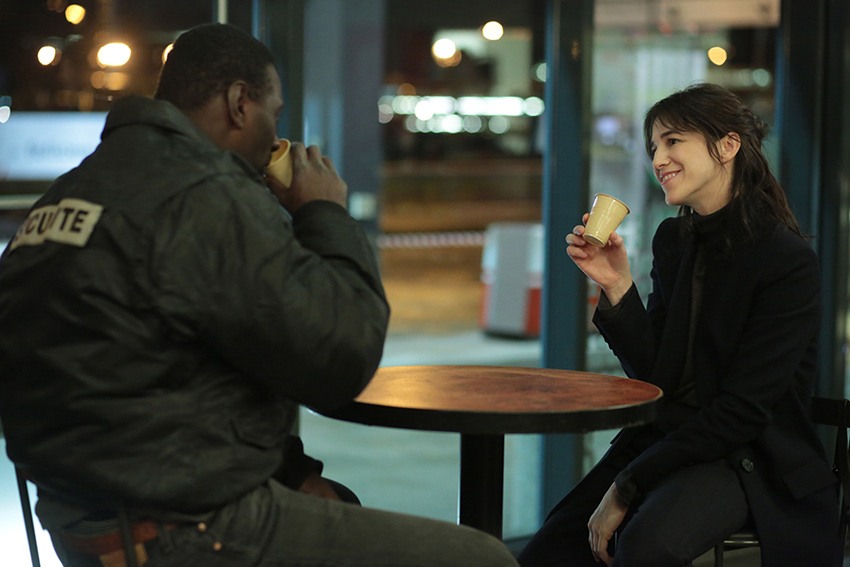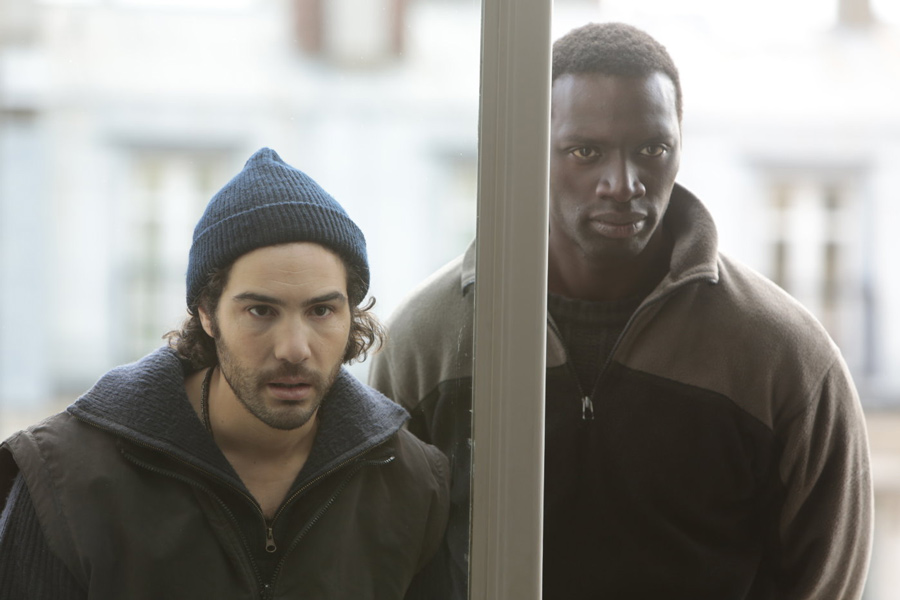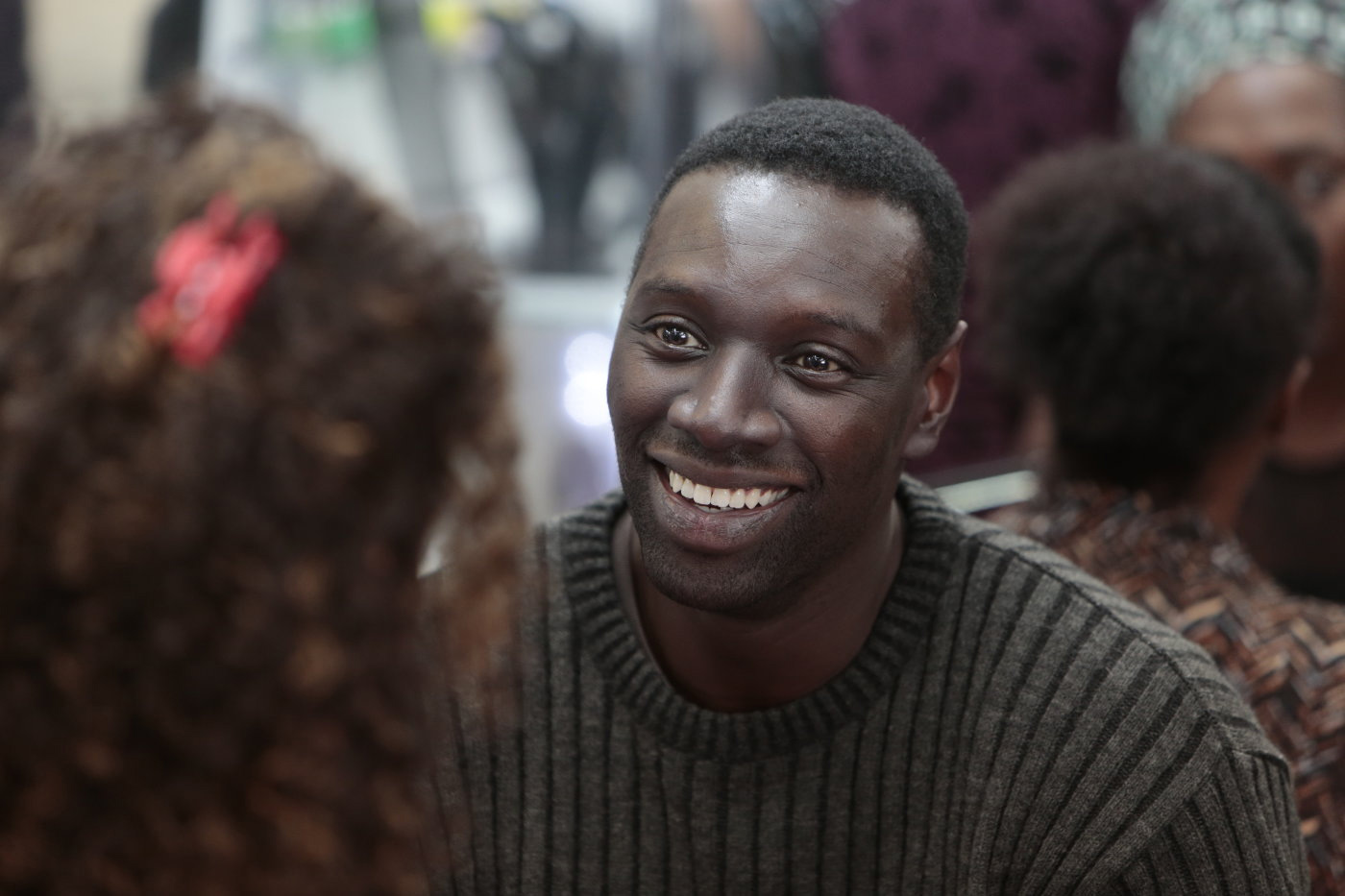‘Samba’ Co-director Eric Toledano on Mixing Comedy with Taboos

Co-directors Eric Toledano and Oliver Nakache’s 2012 film The Intouchables broke out at the global box office like no French film before it. For their follow-up effort, the co-directors have reteamed with rising French star Omar Sy (X-Men: Days of Future Past, Jurassic World) for the immigration dramedy Samba, which co-stars Charlotte Gainsbourg (Nymphomaniac) and Tahar Rahim (A Prophet).
Flicks recently had the chance to talk to Toledano about Samba, which is currently playing in theatres around the country. (Click here for session times.)
Flicks: ‘Samba’ is about a pretty serious topic, but it’s a pretty light film. Do you see it as drama or a comedy?
Eric Toledano: I see it as a mix. The challenge of the movie was, we did not want to go according to type, we didn’t want to be pigeon-holed, so the main challenge for us was to choose – how are we going to do something that is either a drama or a comedy or a romance? We decided to try and combine the three of them into one movie.
Was Omar Sy involved from the beginning?
Yeah, it always starts from him. Our beginning is very funny because he was a comedian on TV in France. We came to him and said “Would you be in our short film?” and he said “I would love to but I’m not an actor”, and we said “No problem. Let’s say we are not directors, you come?” and he said “Yeah”.
It’s very funny to remember this because when he received the Caesar Award, just a few seconds before they said the name, I said to him “Remember you told me you’re not an actor? And now you’re gonna be the best one of the year”. So it always starts from him, we focus on him. We showed him the documentary of The Intouchables, and we did the same with Samba, we showed him the book and he read it and said yes.
Omar Sy has broken out big time since ‘The Intouchables’. What is it about the actor that makes him so appealing do you think?
The thing about him is that he is the same on and off camera. He’s very sympathetic, he’s very generous, he’s very smart, and he’s very humble. Humility is one of the best qualities. For example, when we shoot in the street, he takes two hours to have pictures with people.
He’s always very surprised to be chosen by French people and the audience, you know. He’s kept a humility that people don’t see in the star system. And yet he’s charming and for me it’s very important – even if I don’t show it in Samba – it’s very important that he dances very well. He’s natural.
The best thing you can say about someone is that everything is natural, it’s not fake, and people can feel that. I think people feel that there is no fakeness, no fabrication.

He has an interesting chemistry with Gainsbourg in the film.
It’s kind of a dream in France to have Charlotte Gainsbourg in a movie. She’s hard to reach. She’s very hard to reach. I think that without the success [of The Intouchables], it would’ve been hard to meet her.
We asked to meet her for a coffee, through the agent, and she said okay. She’s so fragile and so beautiful, but not too beautiful. I think her sensibility is very interesting.
Omar, because he’s not an actor, I used to say he was a ‘reaction actor’ – it depends on who you put in front of him. When you put someone like [Intouchables co-star] Francois Cluzet, it gives the reaction of something very pushy. Because Francois Cluzet is always like a volcano, he’s very nervous.
With this film, we wanted Omar to be more quiet, shy, and romantic and when he is in front of Charlotte, we just had to point the camera at him. We did a lot of improvisation.
It was a pleasure to see Tahar Rahim play such a light-hearted role.
I had a chance to meet him in life, and Olivier and I were saying how different he is in life than the movies. So serious in the movies, and we were thinking about how in life he’s very sunny, he’s dancing, he’s always joking and one time we said “What about comedy for you?”.
The part was small but it became bigger. I thought it was great to have Tahar, the most serious [actor around] to give comedy to Omar, the most comedic actor around. It was great to reverse everything.

Was the goal of this film to educate the audience about immigration issues?
It’s not so clear. I think that if you have a very touchy problem that divides so many people, if we don’t speak about that, if you create a taboo, it’s like in psychoanalysis – if you don’t speak about something, you can create more violence by not speaking. So, let’s talk about our taboos.
In France we have a big taboo about [immigration]. We like them, but we hate them in the same place. We need them, but we don’t want to see them. Always in France, we have to deal with a big paradox. It was good to approach this kind of subject and have comedy with it, just to relax with it.
We don’t like to deal with a subject only with a dramatic position, we like to put some jokes and some mess. We have to put some mess on this, just to say “Don’t worry, we’re not very serious”. I’m not a politician, there is no solution in the movie. But let’s have a look at everything.
Do you think it’s the responsibility of cinema to start these kinds of conversations?
I don’t know if it’s the responsibility of cinema, but for us, after all the attention we had on us after The Intouchables, just one more movie like a thriller or a comedy might’ve been a little bit disappointing for us, and for our audience. When you are lucky enough to get money to say something, say something. You’re gonna die. What remains of you?
With The Intouchables we touched something. We received thousands of letters from people just saying ‘Thank you for doing that and saying that’. You want to feel that again. We couldn’t just do another romantic story or I don’t know, we just want to try to make a difference. In this time of our life, let’s do something deep and strong.

Cinema can do something. It’s a popular art. This is the last place where we mix, to share something in the dark with unknown people. It’s different to watching a movie in your house alone. We share something with people. So let’s share something good.
How have you found the reaction to ‘Samba’ in France?
Mostly good, because of two things. First, when you have success in France, it’s very suspicious. People are not very kind with you. And they will say “Who are these guys? What are they gonna tell us now?”
In France, it’s cultural – the idea that the ‘true’ artist is not recognised. He has no success. But 200-years after his death, we say “Remember him, he was a genius”. But to have success in your own time is suspicious.
But mostly the press was very nice. Le Monde did a big beautiful review. We had three million admissions in France. That is a lot for France, but not so much compared to The Intouchables. But I think that we have never had the goal to beat The Intouchables, because it’s a once in a life kind of success. Three million is really good in France. We are almost trying to get out from under The Intouchables. We did three movies before that. This is our movie after.


















